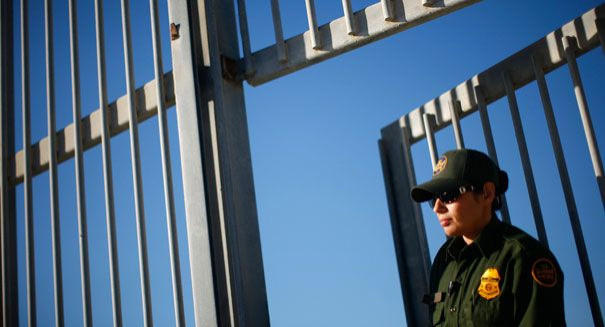
The Associated Press reports that in a letter sent to the Department of Homeland Security’s Office of Inspector General on Wednesday, the American Civil Liberties Union (ACLU) has asked the DHS to investigate 12 specific cases in which it says the constitutional rights of 15 citizens may have been violated at border checkpoints set up by the US Border Patrol. The ACLU accuses the Border Patrol of carrying out illegal searches and overly prolonged stops at various southern Arizona checkpoints, saying reports of abuses filed by residents suggests “systemic deficiencies in Border Patrol policies and practices, which are leading to widespread rights violations”.
“Forty years ago,” wrote James Lyall, the ACLU’s attorney for Arizona, “the US Supreme Court condoned immigration checkpoints under the assumption that stops are ‘brief’ and involve at most a ‘limited inquiry into residence status’ and a ‘visual inspection of the exterior of the vehicle.’” Border Patrol agents, he said, were routinely exceeding their authority in carrying out regular “extended interrogation and detention not related to establishing citizenship, invasive searches, verbal harassment, and physical assault, among other abuses” of border residents. "Border Patrol checkpoints often appear to be operated as drug interdiction checkpoints, which are unconstitutional, and not for the limited purpose of verifying residence status.”
The letter goes on to request that the Border Patrol both investigate the 12 specific cases as well as carry out an overall review of checkpoint policies to ensure that agents are acting within constitutional bounds. In interviews with the AP, Customs and Border Protection officials dismissed the idea that Border Patrol agents were acting outside of their authority. Shawn Moran, vice president of the Border Patrol agents’ union, said they were empowered with “pretty vast” authority to investigate crimes including gun and drug-trafficking, not just immigration violations. "Running a canine around a vehicle or even detaining people so you can run that canine is not viewed as overly prolonged as long as the agent can articulate their suspicions," he said.
Among the 12 cases included in the ACLU complaint is one occurring in December 2013, in which a professional photographer says an agent pointed a gun at his face when he paused to consider whether he was legally obligated to answer a question about if he was carrying a gun.
© 2025 Latin Times. All rights reserved. Do not reproduce without permission.





